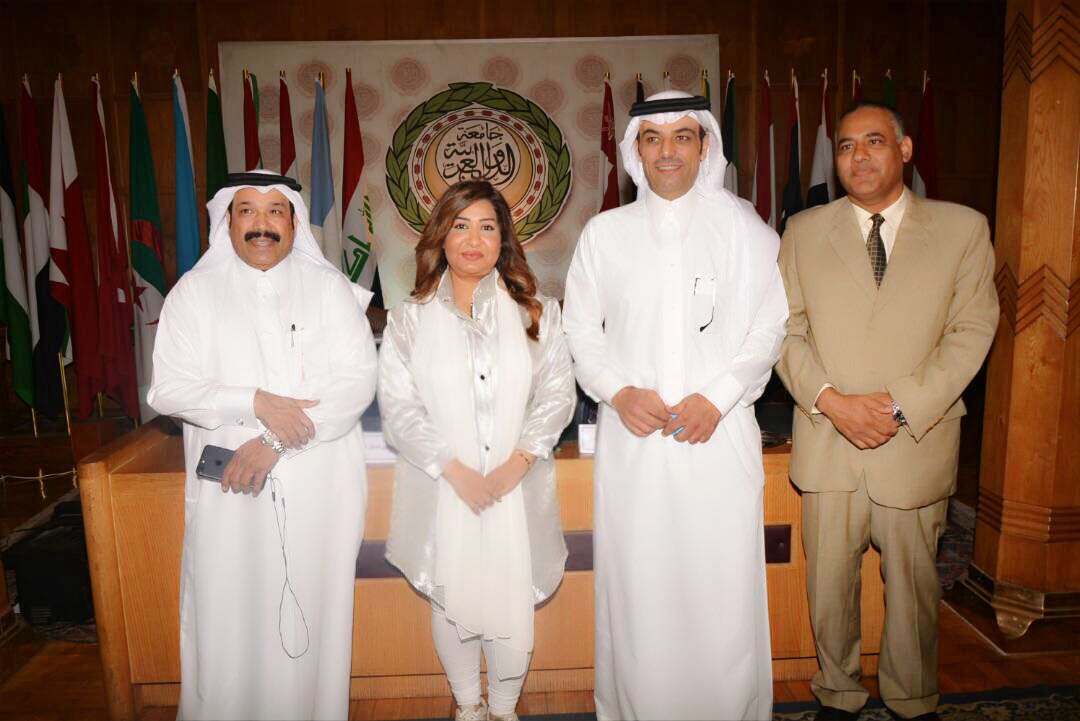NIHR participates in the 13th Session of the Arab Committee on Human Rights (Charter Committee)

The National Institution for Human Rights (NIHR), represented by Mrs. Dina Al-Lazi, lawyer, member of the Council of Commissioners and Head of NIHR’s Committee on Complaints, Monitoring and Follow-up, and Mrs. Eman Al-Abu, Head of Complaints, Monitoring and Follow-up Unit at NIHR General Secretariat, participated in the 13th session of the Arab Committee on Human Rights (Charter Committee) at the headquarters of the League of Arab States in Cairo, Egypt, which was devoted to discuss the second periodic report presented by the State of Qatar on the situation of human rights therein, during 15 – 16 May 2017.
The session was opened by a speech delivered by HE Chancellor Mr. Mohamed Fazea, Chairperson of the Arab Committee on Human Rights, followed by a speech delivered by HE Ambassador Mr. Faisal bin Abdullah Al Hanzab, Head of Qatar’s delegation, then a speech delivered by HE Ambassador Mr. Badr Al-Din Alali, Representative of the Secretary-General of the League of Arab States, in addition to a speech delivered by HE MP Khalid Ali bin Zayed, Representative of the President of the Arab Parliament. The opening session was concluded by a speech delivered by HE Ambassador Mr. Hamad bin Rashid Al-Marri, Assistant Secretary General for Legislative and Legal Affairs of the Cooperation Council for the Arab States of the Gulf (GCC).
The session witnessed interactive dialogue over two days, in which the State of Qatar submitted a report that contained four main themes. The first theme discussed basic information on the State, its constitutional structure and the legal framework for the protection of human rights. The second theme discussed the developments that have occurred in the area of human rights enhancement and protection since the submission of the initial State report. The third theme highlighted the measures and procedures related to the implementation of feedback and recommendations by the Charter Committee on the first State report. The fourth theme was devoted to deal with future challenges and trends. In addition, the Qatar Social Work Foundation submitted a parallel report on Qatar’s respect and safeguarding for all the rights and freedoms set forth in the Arab Charter on Human Rights.
Meanwhile, the Committee submitted its questions and inquiries on Qatar’s compliance with the provisions set forth in the Arab Charter for Human Rights and its implementation of the rights and freedoms contained therein. The participating delegation provided extensive answers to the questions and inquiries raised by the Committee, which were based upon the achievements made by the State of Qatar in the human rights area.
In addition, Mrs. Dina Al-Lazi stressed the importance of NIHR’s participation in such sessions in order to be able to access the various human rights issues that occur in the region and develop sound mechanisms to deal with them and place them in the appropriate framework in compliance with international human rights laws and charters.
The Arab Committee on Human Rights (Charter Committee) is an Arab mechanism emanating from the Arab Charter for Human Rights, which came into force on March 16, 2006 after being ratified by seven Arab countries, including the Kingdom of Bahrain. The Committee is comprised of seven members that are elected by the Arab State Parties to the Charter, who work independently of the Arab governments and the General Secretariat of the League of Arab States, in order to assess the human rights situation in those States, through the examination of their national reports and the extent of their implementation in accordance with the provisions of the Charter, and provide them with feedback and observations for the sake of enhancing and protecting human rights therein.


